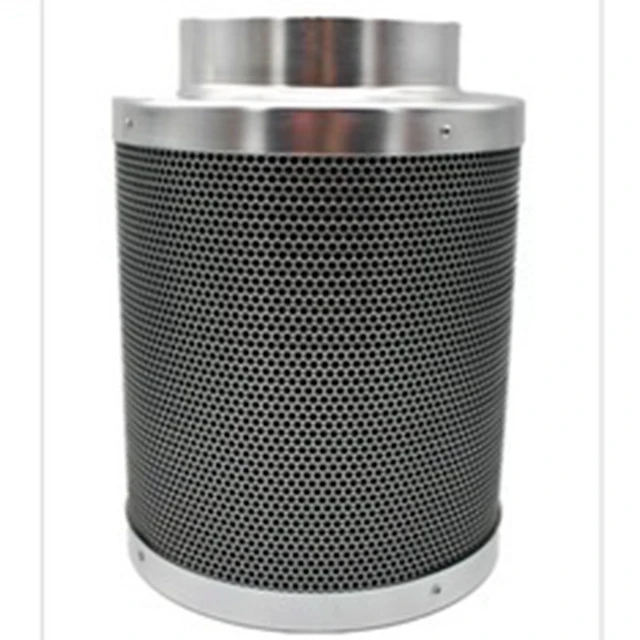 Tel:
+8615930870079
Tel:
+8615930870079
Dhj . 07, 2024 17:13 Back to list
Efficient Pleated Filters for Dust Collectors to Enhance Air Quality and Performance
The Importance of Dust Collector Pleated Filters in Industrial Applications
In various industrial environments, maintaining clean air quality is crucial not only for the health and safety of workers but also for the efficient operation of machinery. One of the most effective ways to manage dust and airborne particulates is through the use of dust collectors equipped with pleated filters. These filters have gained popularity due to their enhanced filtration efficiency and longevity, making them a preferred choice for many industries.
What Are Pleated Filters?
Pleated filters are designed with a series of folds, which significantly increases the surface area compared to traditional flat filters. This design allows for greater dust-holding capacity and improved airflow, resulting in a more efficient filtration process. The pleating technique maximizes the use of filter media, enabling industries to capture finer particles without sacrificing airflow and vacuum pressure.
Benefits of Dust Collector Pleated Filters
1. Enhanced Filtration Efficiency The primary function of a dust collector pleated filter is to trap airborne particles. The pleated design allows for the capture of both large and small particles, including dust, pollen, and even certain biological contaminants. This enhanced ability to filter fine particulates ensures compliance with health and safety regulations in various industries.
2. Longer Service Life Traditional filters can become clogged quickly, leading to inefficient operation and increased maintenance costs. Pleated filters, thanks to their larger surface area, can hold more dust and particles before they need replacement. This longevity translates to reduced downtime and lower operational costs over time.
3. Improved Airflow One of the significant disadvantages of traditional filters is their propensity to restrict airflow as they become clogged. Pleated filters maintain higher airflow rates even as they accumulate dust. This feature is vital for operations that require consistent airflow for processes such as drying, mixing, and conveying.
dust collector pleated filter

4. Versatility Dust collector pleated filters are available in various materials and configurations, making them suitable for a wide range of applications. Whether used in woodworking shops, metal fabrication facilities, or food processing plants, these filters can be customized to meet specific industry requirements and challenges.
5. Environmental Benefits Using pleated filters can contribute to a more sustainable industrial process. By ensuring that dust and particulates are adequately captured, these filters reduce the release of harmful pollutants into the environment. This not only helps industries comply with environmental regulations but also promotes a healthier workplace and community.
Applications Across Industries
Pleated filters are utilized in numerous sectors, including manufacturing, food production, pharmaceuticals, and construction. In woodworking industries, they help capture fine wood dust, which can be harmful to respiratory health. In food processing, pleated filters ensure that the air remains clean, ultimately contributing to better product quality. In pharmaceutical manufacturing, these filters reduce contamination risks, ensuring the safety and efficacy of medications.
Maintenance Considerations
While pleated filters offer many advantages, proper maintenance is crucial to maximize their benefits. Regular inspection and cleaning can extend the life of the filters and ensure optimal performance. Some facilities employ automated monitoring systems to track filter efficiency and airflow, providing real-time data to manage maintenance schedules effectively.
Conclusion
Dust collector pleated filters are an integral component of modern industrial air quality management. Their enhanced filtration capabilities, longer service life, and ability to maintain airflow make them superior to traditional filter options. As industries continue to prioritize health, safety, and environmental compliance, pleated filters will play an increasingly vital role in ensuring clean air and efficient operations. Investing in these advanced filtration solutions is not merely a technical choice; it reflects a commitment to employee welfare and environmental stewardship. In the ever-evolving industrial landscape, the adoption of pleated filters stands as a testament to innovation and responsible practices.
-
Types and Applications of Air Filtration CartridgesNewsJul.28,2025
-
The Role of Gas Turbine FiltersNewsJul.28,2025
-
Mastering Air Filter Cartridge UseNewsJul.28,2025
-
Advanced Turbine Filters for Modern Gas TurbinesNewsJul.28,2025
-
Cellulose Air Filter Cartridge Advantages in Dust FiltrationNewsJul.28,2025
-
Cellulose Filters for Air Particle ReductionNewsJul.28,2025

 Email:
Email:





